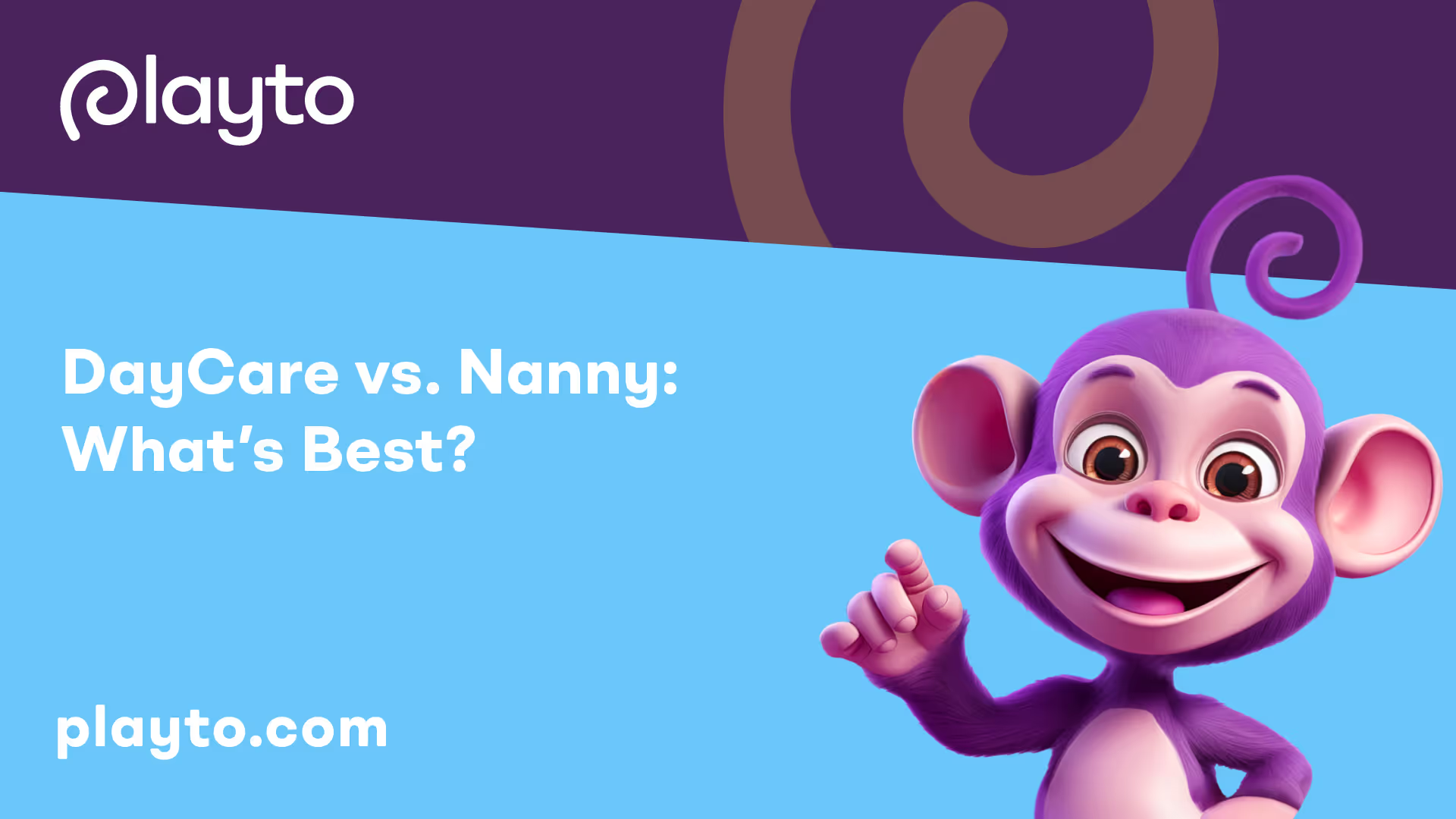
Childcare Costs
When deciding between daycare and hiring a nanny, one of the primary considerations is the cost associated with each childcare option. Below is a breakdown of the typical expenses related to nanny care and daycare facilities.
Nanny Expenses
According to Care's most recent Cost of Care Survey, parents can expect to pay approximately $766 per week for a nanny providing care for one child for 40 hours [1]. While this price reflects the cost of one-on-one care, hiring a nanny can be more financially viable for families with multiple children since the same caregiver can look after all siblings simultaneously. However, the general expense still tends to be higher than daycare.
Expense TypeCost per Week
- Nanny (1 Child): $766
- Nanny (2 Children): $1,155
The drawbacks of daycare compared to nannies include exposure to germs in group settings, less direct communication with caregivers, and the rigidity of scheduled routines which may not align with a child's natural rhythm. Parents must also adhere to specific drop-off and pick-up times set by the daycare facility [2].
Daycare Expenses
In contrast, daycare is almost always more affordable than hiring a nanny. According to the same Cost of Care Survey, parents can expect to pay around $321 per week for daycare services for one child. This financial difference can make daycare an appealing option for many families [1].
Expense Type Cost per Week
- Daycare (1 Child): $321
Daycare facilities often provide a range of activities and services that may lead to lower incremental costs overall. Additionally, daycare offers set hours, which provides reliability and alleviates concerns regarding punctuality that might arise with a hired caregiver.
Considering childcare costs is essential when making the decision between daycare vs. nanny: what’s best?. Each option presents its own unique financial considerations that healthily impact family budgeting and planning.
Personalized Care vs. Social Interaction
In the discussion of daycare vs. nanny: what’s best?, one critical aspect to consider is the type of care and social interaction that each option provides. Both nanny care and daycare have unique benefits and drawbacks.
Benefits of Nanny Care
Nannies offer personalized, one-on-one care in the child's home, catering to the individual needs of the child. This personal attention can help bolster a child's emotional security, fostering a nurturing environment where the child feels safe and comfortable. Nannies also have the flexibility to adjust their schedules according to the family’s needs, which is beneficial for parents who may have unpredictable work hours. Additionally, nannies can assist with light housekeeping, which can ease the burden on parents who are balancing work and home responsibilities.
Pros of Nanny Care Explanation
- Personalized Attention: One-on-one care tailored to the child's needs.
- Flexible Scheduling: Adjustable hours based on family demands.
- Potential for Light Housekeeping: Eases responsibilities for busy parents.
Advantages of Daycare
Daycare facilities provide children with organized programs that promote socialization and interaction with peers. Children attending daycare have the unique opportunity to form friendships as they engage with other kids daily. This consistent interaction is fundamental for developing essential social skills such as sharing, taking turns, and conflict resolution. Daycare settings also often feature structured activities that encourage physical and cognitive development [2].
Moreover, daycare environments typically allow for consistent care and routine, even when a teacher is sick or on vacation, unlike nannies who may be unavailable. This structure can be advantageous for both parents and children as it provides stability.
Pros of Daycare Explanation
- Social Interaction: Daily relationships and friendships develop.
- Structured Activities: Encourages cognitive and physical growth.
- Consistent Care: Provides a reliable routine for children, even during staff absences.
In summary, the choice between a nanny and daycare depends on individual family needs and the desired level of social interaction for the child. Each option presents distinct advantages that cater to different elements of child development. Parents must weigh these factors when deciding what is best for their situation. For more information on how daycare can enhance child development, check out resources on socialization benefits in daycare and preparing kids for kindergarten in daycare.
Regulation and Safety
Child safety is a primary concern for parents when choosing between a nanny and daycare. Understanding the regulations and safety protocols that govern these childcare options can help guide decision-making.
Nanny Care Safety
When hiring a nanny, safety can vary widely based on the individual caregiver's experience, training, and the family's own vetting process. Unlike daycare facilities, which have strict regulatory oversight, nanny safety depends more on parental assessments and background checks. Parents often conduct interviews, check references, and look for certifications in CPR and first aid to ensure their nanny is qualified to provide a secure environment for their children.
However, without standardized regulations, there can be inconsistencies. In-home care can present various safety concerns, from lack of supervision to potential hazards in the home environment. Parents must establish safety guidelines and maintain regular communication with their nanny to ensure that the child’s well-being is prioritized.
Daycare Regulations
In contrast, daycare centers are typically subject to rigorous regulations designed to promote safety and health standards. These facilities must comply with licensing requirements that involve safety measures, regular inspections, and adherence to staff-to-child ratios. According to BabySparks, daycare programs often have more structured safety protocols in place than in-home care.
Aspec tNanny Care Daycare
- Regulation: Minimal.
- Strict Licensing Requirements: Safety inspections are rare; regular inspections required.
- Standardized Training: Varies by caregiver; generally required for staff.
- Child-to-Caregiver Ratio: Flexible; set by state regulations.
Daycare facilities provide parents with a consistent and reliable source of care, offering peace of mind due to the stability built into their operations. This reliability includes measures in place to ensure continuous care even if an employee is unable to work.
Despite the regulatory advantages of daycare, parents should also consider potential risks. Daycares may expose children to more germs in group settings, and parents might have less direct communication with caregivers compared to working with a nanny. For parents seeking a childcare option that maintains a good balance between safety and personalized care, it’s crucial to weigh these factors in the context of individual family needs.
For assistance in finding a safe facility, review guidelines on finding a safe daycare facility.
Child Development
When comparing childcare options, understanding their impact on child development is essential. This section focuses on the cognitive advantages and social skills development offered by daycare and nanny care.
Cognitive Advantages
Research shows that children who attend high-quality childcare programs, such as Head Start, display improved language and cognitive skills compared to those who do not participate in such programs. Providing a stimulating environment is key to enhancing cognitive development. High-quality daycare settings are often designed to foster learning through structured activities, play-based learning, and interaction with trained staff.
A summary of the cognitive benefits associated with different types of care is presented in the table below:
Childcare Type Cognitive Advantages
- Nanny Care: Personalized attention may lead to improved language skills.
- Daycare: Enhanced cognitive skills through group activities and structured learning.
Social Skills Development
Daycares offer a unique advantage when it comes to social skills development. By exposing children to a diverse group of peers, daycare environments promote essential interactions that help children learn important social skills, such as sharing, taking turns, and self-regulation. According to The Bump, these settings provide routines that help children feel secure while encouraging them to build friendships.
The following table outlines the social skills development benefits linked to various childcare arrangements:
Childcare Type Social Skills Development
- Nanny Care: Individual attention can lead to strong one-on-one skills but less peer interaction.
- Daycare: Group settings foster teamwork, conflict resolution, and communication skills.
In sum, both daycare and nanny care have their unique strengths in terms of child development, with daycare typically offering valuable cognitive and social advantages that can prepare children for future educational settings. For parents interested in understanding more about socialization within daycare, consider reading about socialization benefits in daycare.
Health Considerations
Health is a crucial factor for parents when choosing between daycare and nanny care. It is important to consider both the immune system benefits and illness exposure associated with each option.
Immune System Benefits
Children attending daycare are exposed to various germs, which can help build a stronger immune system over time. Their immune systems gain experience by encountering new germs, potentially improving their effectiveness in the long run. Research suggests that children in larger group care before the age of 2.5 are less likely to experience respiratory and ear infections in later elementary school years, indicating that exposure to other children can enhance immune resilience.
Group Care Age Immune System Impact
- Before Age 2.5: Less likely to have respiratory and ear infections later.
- Age 2.5 and Above: Increased immune resilience due to earlier exposure.
Illness Exposure
Conversely, children in daycare or preschool settings are generally more likely to experience illnesses such as ear infections, respiratory infections, and stomach bugs during their first three years of life compared to those cared for at home. While exposure to illness is higher initially, it seems that the benefits gained from that exposure may lead to a healthier immune system as they grow older.
It is essential for parents to weigh these factors when deciding between daycare options and consider the potential for increased resilience against illness over time. For more insights into the overall effects of daycare on child development, consider exploring our articles on socialization benefits in daycare and preparing kids for kindergarten in daycare.
Choosing the Best Option
Determining the best childcare option requires careful consideration of multiple factors. Parents need to weigh the advantages and disadvantages of each option, while also taking their child's needs into account.
Factors to Consider
When considering whether to choose daycare or a nanny, several factors should be evaluated:
Factors Description Cost
Decision Making Process
The decision-making process involves several steps to ensure that parents choose the best option for their child.
- Evaluate Needs: Assess your child’s personality, needs, and any specific requirements they may have.
- Research Options: Collect information about licensed daycare facilities and potential nannies, considering their qualifications, experience, and reviews. For tips on assessing the safety of daycare facilities, check our guide on finding a safe daycare facility.
- Compare Costs: Analyze the overall costs associated with daycare and nanny care, factoring in not only financial costs but also the time and effort required for each option.
- Visit Facilities: If considering daycare, visit potential facilities to observe the environment and interact with caregivers. This will help gauge whether it's a good fit.
- Shortlist and Reflect: Create a shortlist of preferred options and discuss them with family or trusted friends. Reflect on the benefits and drawbacks of each choice.
- Trial Period: If possible, arrange a trial period for daycare or nanny care to evaluate how well your child adapts. Preparedness is key, so consider reviewing whether your child is ready for daycare.
By analyzing these factors and following a structured decision-making process, parents can effectively determine whether daycare or a nanny is the best choice for their childcare needs.
References
[1]: https://www.care.com/c/nanny-vs-day-care-pros-cons-cost
[2]: https://www.thebump.com/a/nanny-vs-daycare
[3]: https://babysparks.com/2019/02/13/pros-cons-of-childcare-programs-for-babies-toddlers/
[4]: https://www.chapeds.com/blog/1076359-pros-and-cons-of-daycare/
[5]: https://parentingtranslator.substack.com/p/daycare-vs-nanny-and-other-research
